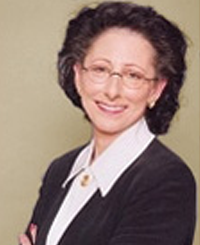PREVENTING ELDER ABUSE
I\’m sure many of you have heard the tragic story of Brooke Astor, the multimillionaire New York socialite who is alleged to have been mistreated by her son, who controls her $45 million portfolio. Obviously this case is making the headlines because of her celebrity and its easy – even comforting – to believe that this sort of abuse only happens when there are vast sums of money involved.
Unfortunately, the reality is that elder abuse occurs in families of all races, backgrounds, nationalities and income groups. Sadder still, contrary to the popular belief that elder abusers are strangers, paid caregivers, neighbors or even friends the heartbreaking truth is that adult children and spouses are the most common abusers.
Elder abuse is possible because it happens to the frailest and most vulnerable – especially if there is dementia – and those who are isolated because the abuser lives with them and can keep them controlled and inaccessible.
WHAT IS ELDER ABUSE
It is important to distinguish elder abuse from other crimes against the elderly. According to the Department for the Aging, unlike one-time crimes that are perpetrated by con artists and over-zealous telemarketers, elder abuse escalates over time, moves from one level of abuse to another or can be a combination of abuses. It is defined as:
The infliction of physical pain or injury, or physical coercion (and confinement against one\’s will). For example:
ž Malnourished or dehydrated
ž Improperly cared for wounds
ž Bruises on the underside of the arm
ž Wears torn, stained, or bloody clothing
ž Injuries that do not match explanations
ž Bruises in shapes of objects (eg: hand, belt)
ž Patches of hair missing
The infliction of mental anguish including demeaning, name calling, treating as a child, insulting, ignoring, threatening, and isolating and the refusal or failure to fulfill a caretaking obligation, including abandonment, non-provision of food or health-related services. For example:
ž Sudden isolation from family/friends
ž Prohibited from using the telephone
ž Has no opportunity to speak for self
ž Prohibited from leaving room/home
ž Contact prohibited with family or friends
ž Inadequate clothing or personal care items when there seems to be enough money
ž Mistreated or abused animals
And the illegal or unethical exploitation and/or use of funds or other assets of the elderly person. For example:
ž Missing funds or valuables
ž Unpaid bills or rent
ž ATM used by a bed-bound person
ž Newly opened joint banking account
ž Unexpectedly large cash withdrawals
ž Property or savings are mismanaged
ž Abrupt changes in will or property title
ž Inappropriate person banking for them
ž Self-report of financial abuse
Indicators of elder abuse may also include the behavior of the elder him/herself. For example:
ž Tearful, talking about suicide
ž Low self-esteem, doubts their sanity
ž Excessively passive
ž Flinches or draws away
ž Anxiety/panic attacks
ž Very hesitant to talk freely
ž Sudden change in appetite
ž Repeated accidental injuries
ž Appears or hints at being frightened
ž Fearful of caregiver or helping professionals
ž Self-report of abuse/mistreatment
If you suspect elder abuse – even if you have no proof – you must report it. But what if the person being abused is embarrassed, afraid of retaliation, and/or fears being abandoned, and begs you not to tell? What if you\’re wrong? First, the abuser is counting on secrets. And second, short-term embarrassment or your loved one\’s anger is nothing compared to long-term abuse and guilt at not reporting it.
HOW TO REPORT ELDER ABUSE
If someone is in immediate, life-threatening danger, call the police or 9-1-1 immediately. If you suspect abuse but the danger is not immediate, you can tell your loved one\’s doctor (a mandated reporter) or call the police. You can also find state elder abuse hotlines and contact information through the national Eldercare Locator, a public service of the U.S. Administration on Aging. You can call toll-free 1-800-677-1116 where specially trained operators will refer you to a local agency that can help. This number is available Monday through Friday from 9a to 8p (except U.S. federal holidays). Or go to the National Center on Elder Abuse (NCEA) at http://elderabusecenter.org/ and click on “State Elder Abuse Hotlines”. If the elder lives in another state, call the protective services agency where the elder lives.
However, once you take away the abuser, the elder may be more lonely and isolated so it\’s important to fill the void with visits from you and with community services such as senior centers, senior day care, and visits with social workers. And finally, look out for seniors in your community who may be vulnerable and speak up if you have concerns. Even if you\’re not sure, it\’s better to be safe than sorry.



Leave a Reply
You must be logged in to post a comment.